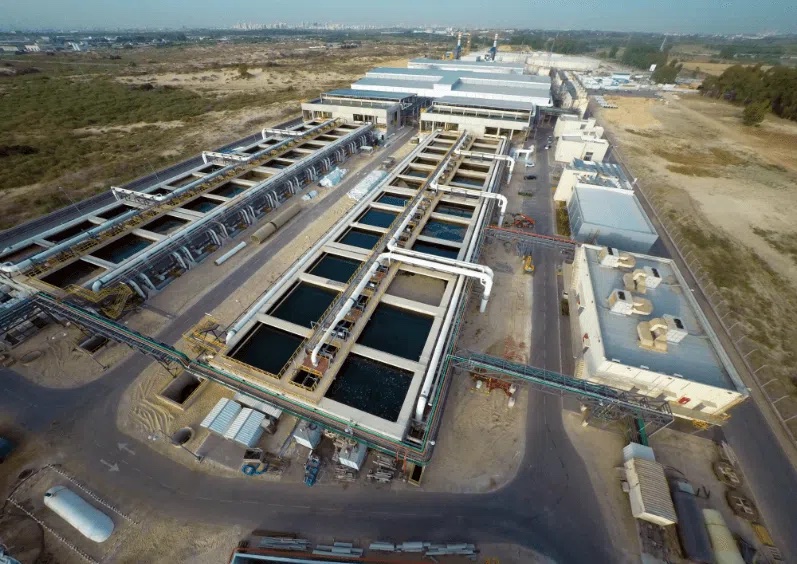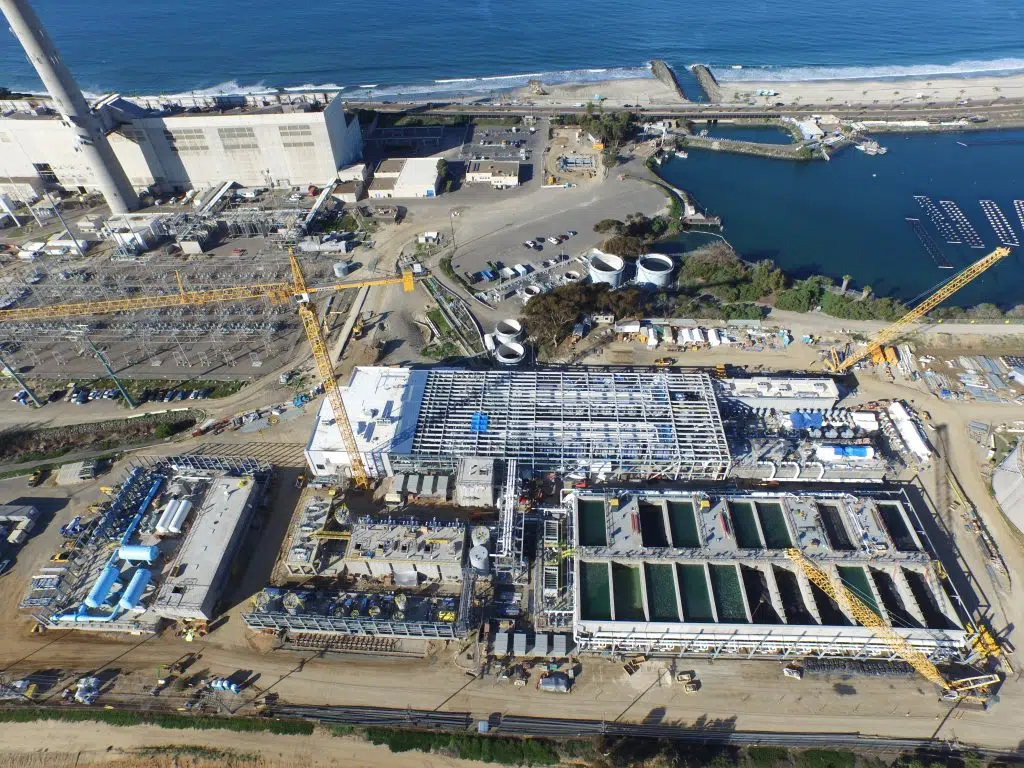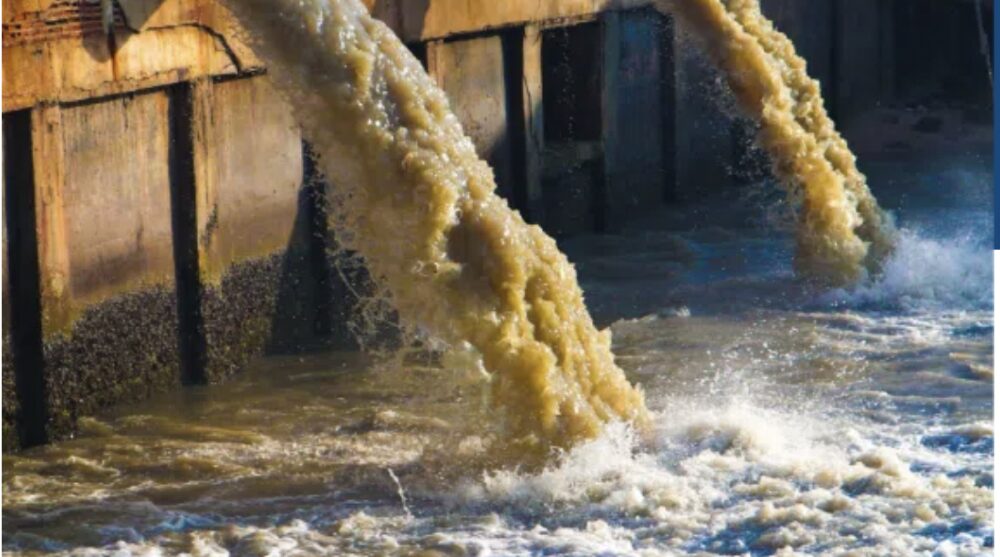
Irina Zaslavschi, Senior Process Engineer, IDE Technologies
Every year on March 22nd, the world comes together to celebrate World Water Day, a day dedicated to raising awareness about the importance of freshwater and advocating for the sustainable management of water resources. This global event, initiated by the United Nations in 1993, serves as a reminder of the critical role that water plays in sustaining life, economies, and ecosystems around the world. While there’s no need to explain the significance of water, this is, nonetheless, an important opportunity to explore the challenges of water scarcity, and the collective actions needed to secure water for all.
Water Scarcity is a Global Challenge
Despite the abundance of water on Earth (water makes up about 71% of the Earth’s surface, but more than 96% of it is salt water), access to clean and safe water remains a pressing issue for millions of people worldwide. Water scarcity, defined as the lack of sufficient available water resources to meet the demands of a region, is exacerbated by a combination of factors, including climate change, overconsumption, pollution, and inefficient water usage. For example:
- Climate change is altering rainfall patterns and increasing the frequency and severity of droughts, leading to water shortages in many regions.
- Water demand increase, particularly in urban areas and industries, is depleting freshwater sources faster than they can be replenished.
- Pollution from industrial runoff, agricultural, untreated household wastewater as well as poor water management reduce availability of freshwater supplies, making them unfit for human consumption and ecosystems.
- Inefficient irrigation practices and outdated infrastructure contribute to water wastage and exacerbate scarcity in agricultural regions.
The impacts of water scarcity are far-reaching, affecting food security, public health, and geopolitical stability. In regions facing chronic water shortages, communities struggle to grow crops, access clean drinking water, and maintain basic hygiene, leading to malnutrition, disease, and social unrest. Addressing water scarcity requires a multi-faceted approach involving efficient water management, conservation efforts, improved infrastructure, sustainable agricultural practices, pollution control, and international cooperation.
Water for Peace: The Role of Water in Global Stability
World Water Day serves as a catalyst for action and cooperation, raising awareness and promoting the sustainable management of water resources globally. Each year, the event focuses on a specific theme to highlight different aspects of the global water crisis. This year’s theme, “Water for Peace,” emphasizes the pivotal role of water in fostering stability and prosperity worldwide.This theme focuses on how water can be a tool for cooperation and stability between communities and countries, preventing conflicts and promoting peace and development.This is aligned directly with the UN’s Sustainable Development Goal 6 which aims to ensure availability and sustainability management of water and sanitation for all.
Water is intrinsically linked to sustainable development, regional stability, and global peace and has the power to foster harmony, prosperity and peace. Scarce or polluted water, along with struggles for access, can exacerbate tensions among communities and nations. By prioritizing cooperation on water issues, we can strive to meet the needs of all while contributing to global stability.
The interconnectedness of prosperity and peace hinges on effective water management. As nations grapple with challenges like climate change, mass migration, and political instability, integrating water cooperation into their strategies becomes imperative.
Water presents an opportunity for resolution in times of crisis. By rallying around equitable and sustainable water usage, from international agreements to local initiatives, we can foster unity and understanding among diverse communities and nations.
The bottom line? Addressing water-related conflicts and fostering collaboration among nations are crucial steps towards building a more peaceful and sustainable future for everyone.
Turning the Tide: Transforming Water Scarcity into Water Resiliency
Amid the challenges of water scarcity, there are shining examples of successful water management practices in various communities and countries. Take for instance Israel, a nation grappling with arid conditions and a growing population. Despite these hurdles, Israel’s innovative approach to desalination has been a game-changer. In the early 2000s, visionary leadership spearheaded the National Master Plan for Water Desalination, attracted private investment and lead to the construction of groundbreaking desalination plants like Sorek, Hadera, and Ashdod.

Fast forward to the late 2010s, and Israel’s desalination capacity had surged, supplying over 585 million cubic meters of desalinated water annually and significantly reducing reliance on natural freshwater sources. Today, desalination accounts for over 80% of Israel’s drinking water, underscoring the nation’s remarkable journey towards water resilience and serving as a blueprint for others facing similar challenges.
Meanwhile,on the other side of the world, the story of San Diego, USA, paints a similar picture of resilience in the face of water scarcity. In the early 1990s, drought conditions gripped the region, prompting officials to seek alternative water sources. Recognizing the reliability of desalination, the San Diego Water Authority decided to invest in a desalination plant. The journey to a fully operating desalination facility was long and full of challenges but today the plant has become a cornerstone of San Diego’s water supply portfolio, offering a drought-proof water source and enhancing the city’s water independence. It produces around 50 million gallons of desalinated seawater a day (MGD) and provides 10% of the total drinking water needed by San Diego, delivering potable water to 400,000 people while strictly adhering to regulations.

These success stories exemplify the power of innovative solutions in addressing water challenges and securing a sustainable future.
Water Conservation From the Ground Up
Did you know that…
A leaky faucet can waste up to 100 gallons of water per day?
Leaving the water running while brushing your teeth can use about 5 gallons.
And an automatic dishwasher will consume 9 to 12 gallons per cycle in contrast to handwashing dishes which use up to 20 gallons of water.
Individuals and communities wield significant influence in water conservation through adopting straightforward yet impactful practices. This includes addressing water waste by promptly fixing leaks, opting for water-efficient appliances, and embracing shorter showers. Additionally, conserving water in gardens by watering plants during cooler hours and employing mulch to retain moisture further contributes to sustainability efforts. While these actions may seem small individually, their cumulative effect is substantial. By uniting as communities and taking concerted action, we can magnify our impact on both local and global water sustainability endeavors.
The Role of Global Cooperation and Policy Making
International cooperation is crucial in addressing water scarcity and achieving water security for several reasons:
Shared Water Resources: Many water sources, such as rivers, lakes, and aquifers, span multiple countries. International cooperation is necessary to manage these shared resources effectively, ensuring equitable access and sustainable use among all stakeholders.
Transboundary Water Management: Water scarcity often transcends national borders. Collaborative agreements and joint management frameworks are essential to prevent conflicts over water allocation and usage.
Climate Change Impacts: Climate change impacts the water cycle – exacerbates water scarcity by altering precipitation patterns, increasing the frequency of droughts and floods, and affecting water quality. International cooperation enables countries to collectively address the impacts of climate change on water resources through adaptation strategies and resilience-building measures.
Knowledge and Technology Sharing: International collaboration facilitates the exchange of knowledge, expertise, and best practices in water management, conservation, and technology development.
Infrastructure Development: Investing in water infrastructure through financing mechanisms, public-private partnerships, and policy incentives that drive innovation is crucial to expanding access to safe water and sanitation. International cooperation is essential to plan, fund, and implement large-scale projects effectively, maximizing their benefits while minimizing potential negative impacts on ecosystems and communities.
From Reflection to Action: Committing to Sustainable Water Management
World Water Day serves as a powerful reminder of our collective responsibility to protect and preserve our most precious resource. By recognizing the interconnectedness of water security, peace, and prosperity, we can inspire action at all levels, from individual habits to international policies. As we reflect on the challenges of water scarcity and the innovative solutions showcased on this day, let us reaffirm our commitment to sustainable water management and cooperation. Together, we can ensure a future where clean and accessible water is available to all, paving the way for a healthier, more resilient planet for generations to come.
Author: Irina Zaslavschi, Senior Process Engineer, IDE Technologies
Irina Zaslavschi is a seasoned Senior Process Engineer with extensive experience in the design and management of desalination plants. Holding a Ph.D. in Chemical Engineering from the Technion, she has led major projects and contributed to research on water treatment processes. Currently serving as the SW Process Department Manager at IDE Technologies Ltd., Irina excels in conceptual and detailed design, as well as research and development of water technologies. Her expertise and leadership have been instrumental in advancing sustainable water solutions globally.







